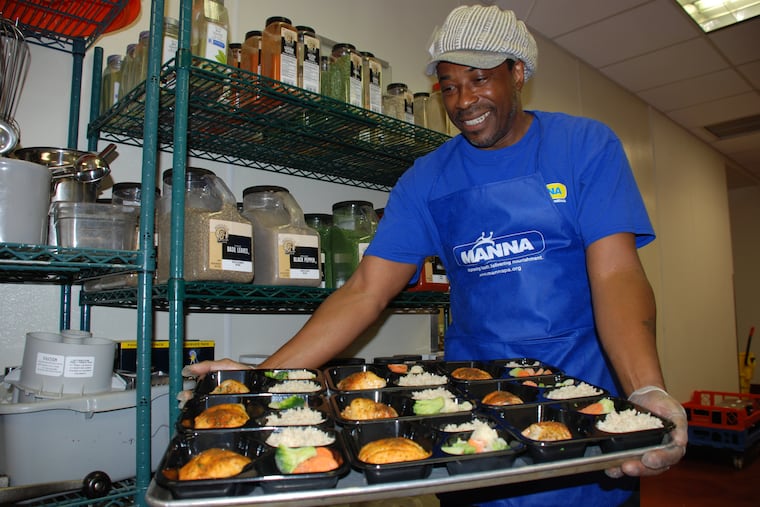Medically tailored meals have proven to be effective. Now health insurers are paying attention.
State Rep. Donna Bullock (D., Philadelphia) has called for the state to allow hospitals to provide eligible medical assistance beneficiaries with prescribed meals.

About 2,400 years after Hippocrates, the father of Western medicine, declared food was medicine, we are finally getting his point.
A poor diet contributes to the death of one in five people globally, according to the BMJ, the British Medical Journal.
And in the United States, 90% of people are metabolically unhealthy, which puts them at risk for developing chronic illnesses, cardiovascular disease, or compromising organ health.
Medically tailored meals improve the health outcomes in chronically ill patients with nutrition-sensitive conditions.
That is the basis behind the “food is medicine” movement, which views nutrition not as a replacement for pharmaceuticals but as a nutrition aid to help prevent, manage, and treat illness.
MANNA, a local “food is medicine” organization, was started to help people with AIDS, bringing “food to people who were dying,” said Sue Daugherty, CEO.
In 1997, as AIDS patients were living longer, there was a shift in the program to help clients use nutrition to manage the side effects of their medications.
“I was doing counseling and I would see triglycerides that were over 800 when normally it’s around 150. I thought the lab had screwed up, but it was the side effect of the medication. And we were serving gooey mac & cheese,” said Daugherty, explaining that the food can increase patients’ triglycerides even more. Daugherty started at MANNA as a registered dietitian nutritionist in 1999.
By 2013, MANNA was able to show that medically tailored meals decreased health care costs by 31% and hospitalizations by half.
Currently, MANNA delivers 150,000 meals to 1,600 homes a month on a three-week meal cycle, and is capable of providing personalized meals for 85 diagnoses.
» READ MORE: Fresh produce is an increasingly popular prescription for chronically ill patients
The success of medically tailored meals has led to increased involvement from insurance companies. According to the Food Is Medicine Coalition, “If all eligible patients received access to medically tailored meals, in just the first year of service 1,594,000 hospitalizations could be avoided for a net cost savings of $13.6 billion.”
Last year, Keystone First, one of the state’s largest Medicaid health plans, teamed with Crozer Health and MANNA. Crozer identifies the patients, and MANNA provides the medically tailored meals in an effort to prevent unnecessary visits to the emergency room.
The number of patients with uncontrolled diabetes was creating a rehospitalization crisis. “It would send them right back to the hospital,” said Keystone First Market president Joanne McFall.
“The intervention is to help patients learn how to eat — the right food, the right portion and to break the cycle [of repeat hospitalizations],” McFall said.
Keystone First medical director Lily Higgins, a physician, said after three to four months, patients’ A1C levels, which measure the average amount of glucose in a patient’s blood, had decreased. They were also able to work with another nutrition-based group, the Family Food program, which provides dietitian counseling for up to a year to help patients learn to shop and prepare wholesome meals.
Highmark Health, too, announced in December 2022 the launch of a new pilot program to provide medically tailored meals to its insurance members.
State Rep. Donna Bullock (D., Philadelphia) introduced legislation last month, calling for Pennsylvania to conduct a three-year pilot program for medically tailored meals that would allow hospitals to provide eligible medical assistance beneficiaries with prescribed meals and nutrition counseling.
“While this is not yet widely covered by insurance, it should be — and in government, we should help to move the initiative along,” wrote Bullock in a recent op-ed announcing her legislation.
.